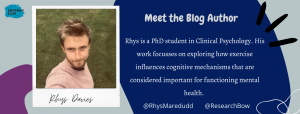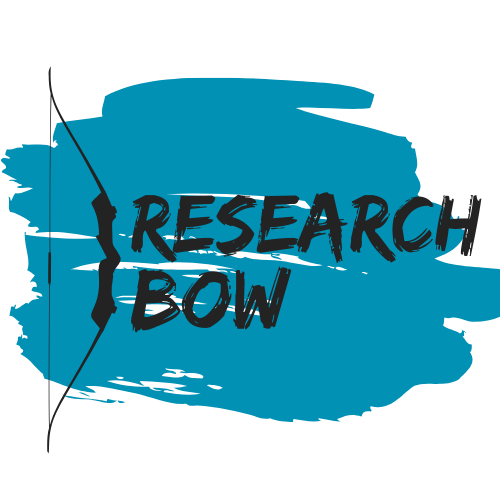This semester, I finally started my qualitative analysis and writing. No more distractions. No more quanty procrastination. As I had opted for a reflexive thematic analysis, this involved coding (be quanty or quali, I will still be coding), reflecting, theming, writing, and more reflecting. Everything felt great. Until I had to wrestle with the ologies. The ologies that are central to qualitative research and blissfully overlooked in quantitative research. And there was no escaping them; they are central to high quality reflexive thematic analysis, as they are the backbone to how we attempt to understand the world and generate knowledge.
So what are these ologies that are so valued in qualitative research? We have ontology, which is the philosophical study of being and reality. And we have epistemology, which is the study of knowledge. Together, they have inspired philosophers to write dense and theoretically complex different interpretations of knowledge to make sense of reality, which are often translated into a short summary in the qualitative method section to justify the research design. If my tone comes across as slightly cynical here, it’s because this aspect is part of my frustration with finding my ological positionality (if philosophers can make up terms, so can I). It is difficult to find the author’s definition of their positionality in journal publications. Rarer yet is finding the justification of how the positionality has influenced the research. It felt like an expectation that readers should be able to “get it”, with little questions asked about whether the writer “got it”.

Part of the challenge is the identification of high-quality papers; a difficult task when the methodology is unfamiliar. This confusion was occurring in papers recommended on thematicanalysis.net (an otherwise amazing resource for anyone conducting reflexive thematic analysis), making it very difficult to understand how and why theoretical positions are used in research. It essentially resulted in a tantrum which led to this blog post. But it also made me aware that my frustration was with the limitations of some research papers, and not just the frustration with the limitations of my own knowledge. The higher quality papers provide clarity on the authors’ understanding of their positionality and explain how it informs the research. I appreciate some of these challenges are related to word limits and journal expectations. But given that we now have specialised qualitative research journals, there should be scope to address these problems. We as a field have to be better. If the ologies are important, it’s important to communicate them clearly. The same rules should apply to quantitative research as well (see Jamieson et al., 2023 for an excellent discussion on positionality in quantitative methods). I suspect doing so would help address issues relating to p-values and “statistical significance”.
The experience of reading other papers to make sense of how the ologies felt akin to the tribal sensation of choosing a football team to support in school. You have the die-hard supporters who will follow an ology/team because they always have. You have the fair-weather supporters who will follow an ology/team so long as it supports their motivations (looking at you, pragmatists…). And you have the “I’ll choose a team because that’s what’s expected of me” crowd (I fell into this category). I found it very difficult to see how it was being used, which made it difficult to understand why it was being used. As a quanty researcher, I would get frustrated and alienated with the ironically generalised assertion that quantitative research is inherently positivist/reductionist. At no point during my statistical training have I been taught that analysis can give us the binary “yes”/”no” answers that are required for positivist research. This assumption is only possible if you believe p < .05 is the secret to understanding Life, the Universe and Everything else. Dig a little deeper into the literature, and we will see debates on why the p value is flawed and misused in research (Goodman 2008; Krueger 2001). We also see that statistics are and always have been the science of uncertainty. The observation that p < .05 is not evidence of binary certainty; it’s evidence that we essentially have 5% uncertainty given the assumptions are all upheld for this particular study. And even this assertion is based on the assumption that we are frequentists who strictly follow frequentist designs (we rarely do), and we do not subscribe to Bayesians or Likelihood theorist understanding of statistics. I would go as far as to argue that labelling quantitative research as inherently positivist is itself a positivist statement; a more interesting approach would be to interview quantitative researchers to better understand their understanding of how knowledge is generated.
Rants aside, my understanding started to change during my time being a student in the excellent Applied Qualitative Data Collection and Analysis module. During the grounded theory session from Dr Lissette Aviles, it was finally explained how ontology and epistemology informed the analysis. No longer was it just fancy philosophical words flying about, but an actual, clear rationale of how our understanding of these ologies was used in research, and why it was important to communicate them. It was a lightbulb moment that opened the door to understanding why it was important. But I still had the challenge of actually finding an ology that I felt I could honestly say related to my understanding of reality and knowledge.
First off, discussing with/irritating on the ologies was immensely helpful on my journey to finding my positionality. Especially when you come to realise that everyone’s interpretation of each ology is informed by their own positionality –we get to a state of meta-positionality, and that’s ok because philosophy thrives on complications like meta-positionality. It takes away the pressure of finding the “perfect” ology, because it likely does not exist. This highlighted that I needed to do more than state my ology after finding it; I needed to explain what it meant to me. Along the journey, I also stumbled upon https://myepistemology.com/. The website asks you some reflexive questions about your understanding of knowledge, identity and perception and provides explanations and summaries of some of the philosophical positions one could take. None fit perfectly, but the questions asked and examples given sparked the fuse to helping me find my way. Particularly, the questions on thinking about nature and truth. I recommend that anyone else in my position of frustration stop and ponder the following:
- Can truth be absolute, or is it always relative to a specific context or perspective?
- How can we determine if something is true?
- Can two contradictory statements both be true, or must one always be false?
- Is there a difference between objective truth and subjective truth? If so, how do we distinguish between them?
(Questions from https://myepistemology.com/)

These questions led me to realise that these are genuinely complex, and I struggled to find simple answers to them. For the first one, I felt truth in theory can be absolute, but this absolute truth can only be understood from a relative or contextual perspective (which I realise is very much a sitting on the fence/centristresponse). For the second question of how we can determine if something is true, I realised I am comfortable attempting to understand truth from both quantitative and qualitative methodologies – it’s not so much what is used, it’s how it’s used for which question of truth that’s important to me. The third question was the only one I felt I had a straightforward answer to; yes, two contradictory statements can both be true, the Simpson paradox is a lovely example of this phenomenon. And the 4th question was a nice reflexive surprise. After sitting down and meditating on the question, I felt that the key difference between objective and subjective truth is that objective truth can only ever provide an estimation of truth, as deriving objective truth will always involve measurement and/or perceptual error. Meanwhile, subjective truth is much easier to claim certainty, as subjectivity is derived from the viewpoint of an individual (i.e., it is true that I subjectively found the process of understanding ologies to be difficult).
It made me realise that despite appreciating how constructivism informs our world view, I am not a social constructivist; there is an objective truth beyond it. Furthermore, it made me realise how cynical/afraid I am of pure social constructivists. To my understanding, ignoring the potential of an external truth is a slippery slope to post-truth and populism (a hypothetically fully socially constructed world feels Orwellian, and even in Orwellian worlds the characters feel the need to seek further truth). Equally, I was aware that I am not a positivist, as I felt these assumptions of truth and knowledge cannot be supported by any methodology available to us in science. Rather, I felt myself being pulled towards critical realism; a space that recognises objective truths that can only be understood via socially generated theories/simplifications. A space that recognises that knowledge can be generated through both quantitative and qualitative means. A space that is interested in causality.
Anyone who has tried digging into critical realism literature will know it is a painful space of dense philosophical isms. I would really recommend A short guide to ontology and epistemology; why everyone should be a realist by Tom Fryer for anyone trying to make sense of this tricky field, as the writing is entertaining and approachable. Tom Fryer has done for ologies what Andy Field did for statistics. Finding this paper was a moment of relief and joy! I had an ology position that I could make sense of, that genuinely represented my worldview of truth and knowledge. Furthermore, it led me to papers that actually explained how the philosophical position was informing the not only the analysis, but also the research questions and research aims (for anyone else aiming to use critical realism for reflexive thematic analysis, please read; A critical realist approach to thematic analysis: producing causal explanations and A realist approach to thematic analysis: making sense of qualitative data through experiential, inferential and dispositional themes).
Now I have my metaphorical philosophical football team to support and write about. But more importantly, I have a deeper understanding of what informs my understanding of the world. The journey has also provided me with unexpected tools for critical evaluation of research, that I can apply with greater confidence towards qualitative research but also apply them in the discussion of quantitative research. I can also see the value of exploring the questions of truth and knowledge and feel confident that I am a better researcher for it.
HiSS courses
Course Catalogue – Introduction and Foundation of Qualitative Research (SHSS11005)
Course Catalogue – Applied Qualitative Data Collection and Analysis (SHSS11006)
Useful Website
References and recommend reading
Jamieson, M. K., Govaart, G. H., & Pownall, M. (2023). Reflexivity in quantitative research: A rationale and beginner’s guide. Social and Personality Psychology Compass, 17(4), e12735.
Fletcher, A. J. (2017). Applying critical realism in qualitative research: methodology meets method. International journal of social research methodology, 20(2), 181-194.
Fryer, T. (2020). A short guide to ontology and epistemology: Why everyone should be a critical realist.
Fryer, T. (2022). A critical realist approach to thematic analysis: producing causal explanations. Journal of Critical Realism, 21(4), 365-384.
Goodman, S. (2008, July). A dirty dozen: twelve p-value misconceptions. In Seminars in hematology (Vol. 45, No. 3, pp. 135-140). WB Saunders.
Krueger, J. (2001). Null hypothesis significance testing: On the survival of a flawed method. American Psychologist, 56(1), 16–26. https://doi.org/10.1037/0003-066X.56.1.16
Wiltshire, G., & Ronkainen, N. (2021). A realist approach to thematic analysis: making sense of qualitative data through experiential, inferential and dispositional themes. Journal of Critical Realism, 20(2), 159-180.






What a lovely and reflective post! Glad you enjoyed the courses :-)!